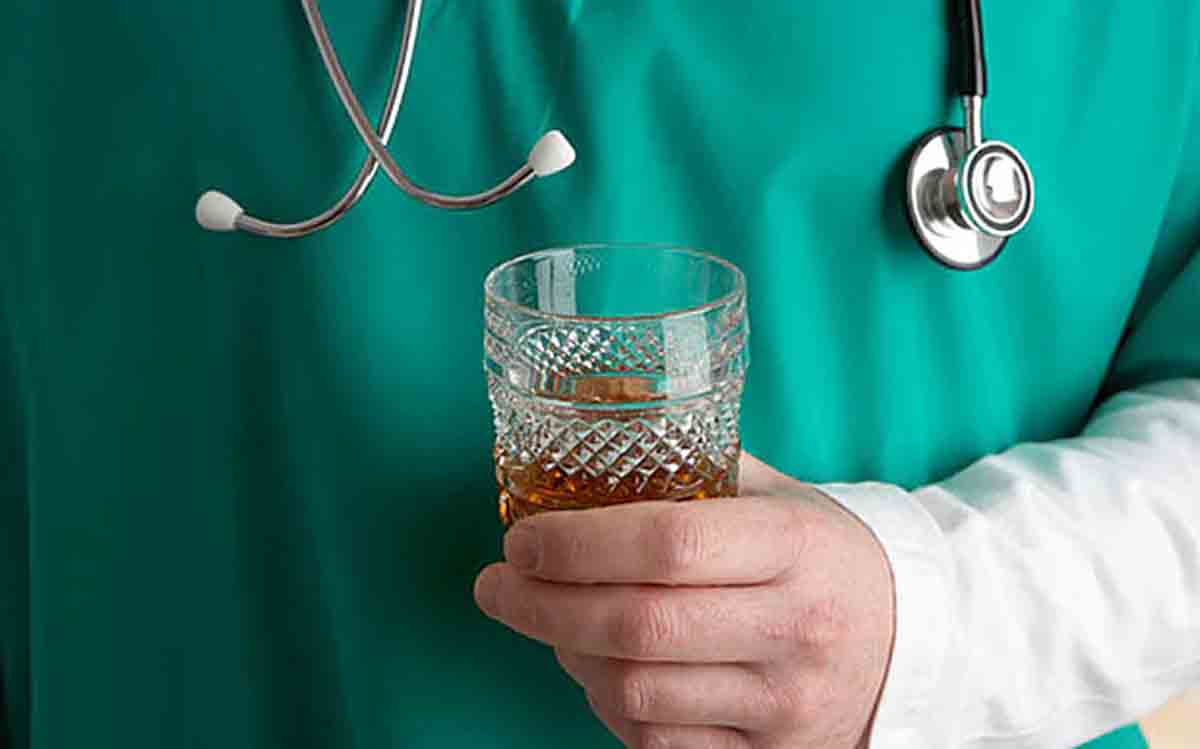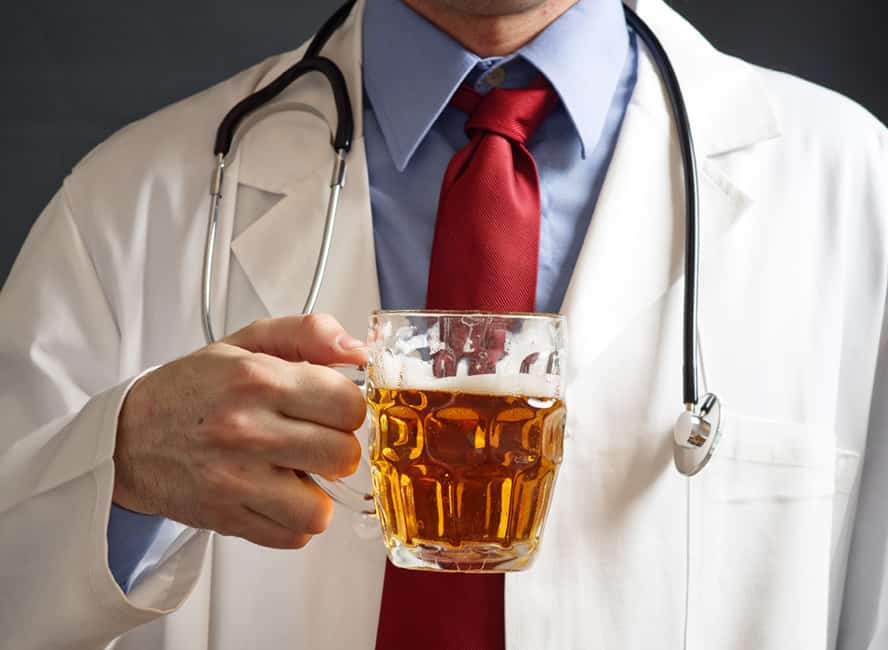Doctors are frequently regarded as individuals who prioritize health and advocate for well-being. Despite this perception, doctors, much like anyone else, possess their personal lives and behaviors.
Consequently, a thought-provoking question arises: do doctors partake in alcohol consumption?
Although it may initially appear contradictory to connect alcohol with a profession centered on health, there exist several factors that influence the drinking habits of doctors.
Table of Contents
Toggle12 Factors That Influence Doctors’ Drinking

The reasons behind doctors’ alcohol consumption are multifaceted and can be attributed to various personal and professional influences.
The demanding nature of the medical profession creates immense stress and pressure that may lead some individuals in the field to turn to alcohol as a means of relief. Moreover, social norms and peer influence contribute significantly to shaping doctors’ drinking patterns.
Furthermore, non-traditional forms of employment like temporary or part-time work also play a role in healthcare professionals consuming more alcohol. The following factors aim to explore some of the primary aspects contributing to doctors’ alcohol consumption habits.
1. Stress and Pressure
The medical profession is known for its demanding and highly stressful nature. Doctors frequently put in long hours, navigate life-or-death situations, and shoulder the responsibility for their patient’s well-being. Under tremendous pressure, certain physicians might turn to drinking alcohol as a means of dealing with the stresses they face.
2. Work-Life Balance
Finding a work-life balance can be quite a struggle for professionals. Given the demanding nature of their profession, there is often limited time for personal pursuits and relaxation. Consequently, it’s not uncommon for some doctors to resort to alcohol as a means of relieving stress and momentarily escaping the pressures they face in their work.
3. Social Norms and Peer Influence
Physicians, similar to any group, can be susceptible to the impact of their colleague’s behaviors and attitudes. In certain medical cultures, it is not uncommon for socializing and networking events to involve alcohol consumption. Unfortunately, this can create an environment where drinking alcohol is considered a normative behavior among doctors.
4. Individual Traits
The consumption habits of doctors when it comes to alcohol cannot be solely attributed to external factors; individual characteristics and predispositions play an influential role too. It is significant to acknowledge that some doctors might possess inherent traits that make them more prone to engaging in problem-related drinking behaviors.
This susceptibility might stem from a combination of genetics, early childhood events, or efforts made toward finding relief from emotional pain. Understanding these underlying factors sheds light on why alcohol use disorder can emerge among physicians.
5. Availability and Accessibility
Doctors frequently have convenient access to alcohol, whether it may be during social gatherings, medical conferences, or even within hospital premises. Such accessibility can potentially facilitate doctors’ engagement in alcohol consumption.
6. Trauma Exposure
In their noble profession, doctors often witness grievous incidents that profoundly affect them – it may be observing the loss of life or grappling with the aftermath of medical blunders firsthand. These encounters expose them to potential symptoms associated with post-traumatic stress disorder (PTSD). Thereby raising their susceptibility towards developing alcohol use disorder.
7. Financial Stress
The burden of medical school debt, the cost of malpractice insurance, and other financial stressors are known to exert a significant influence on doctors’ alcohol consumption. It is not uncommon for particular doctors to seek solace in alcohol as a coping mechanism to deal with the formidable financial pressures inherent in their line of work.
8. Culture and Specialty
Attitudes toward alcohol consumption may differ among various medical specialties and cultures. Different medical specialties may have varying attitudes toward alcohol consumption, with some being more lenient while others adopting an approach. Similarly, cultural norms and societal expectations can influence the drinking habits of doctors.
9. Mental Health Issues
Like anyone, doctors may face challenges related to their mental well-being, including anxiety, depression, or burnout. These conditions can heighten the likelihood of engaging in alcohol use as individuals might resort to alcohol as a means of self-medication or to manage their symptoms.
10. Lack of Support
Doctors may experience a lack of assistance from their peers, supervisors, or healthcare systems. Consequently, they may experience emotions of seclusion and exhaustion that eventually heighten the prospects of resorting to alcohol consumption.
11. Non-Standard Employment
Non-traditional forms of employment, such as temporary or part-time work, can also have an impact on alcohol consumption among healthcare professionals. The absence of stability and job security in these arrangements may result in heightened stress levels and a greater propensity for turning to alcohol as a means of coping.
12. Job Burnout
Chronic physical fatigue combined with emotional exhaustion characterizes job burnout which typically occurs due to prolonged stressors and discontent in the workplace. It is important to note that physicians are no exception when it comes to experiencing this phenomenon.
Ultimately impacting their inclination towards using alcohol as a means of coping with these difficulties. The contributing factors leading up to job burnout encompass heavy workloads, along with long working hours while simultaneously struggling with work-life balance and a lack of control over one’s professional obligations.
Conclusion
To conclude the discussion at hand, doctors are like any other professionals who do engage in consuming alcoholic beverages. The motivations fibbing behind their choice to indulge in alcohol consumption can be complex and multifaceted.
They could include managing the stress associated with their profession effectively; attempting to strike a healthy balance between their work and personal life; adhering to societal norms that surround them; unique personality traits they possess individually; or even simply accessibility being convenient.
Nevertheless, it is prudent to note that while consuming alcoholic drinks in moderation may not impose significant threats on an individual’s overall well-being, excessive or problematic use could result in grave consequences spanning both the physical and mental spheres of one’s health.
Professionals, such as doctors, should give thought to their alcohol consumption habits. Seek help if needed, especially when it becomes excessive that it affects their work performance.
Although the issue of alcohol consumption among doctors may seem puzzling to some, it serves as a reminder that doctors are individuals who face their challenges and develop ways to cope.
By comprehending the factors that contribute to doctors’ drinking habits, you can cultivate a more empathetic and helpful atmosphere for healthcare practitioners. Thus, enhancing their overall welfare and subsequently improving the standard of care they offer their patients.

I am a passionate beer connoisseur with a deep appreciation for the art and science of brewing. With years of experience tasting and evaluating various beers, I love to share my opinions and insights with others and I am always eager to engage in lively discussions about my favorite beverage.
















